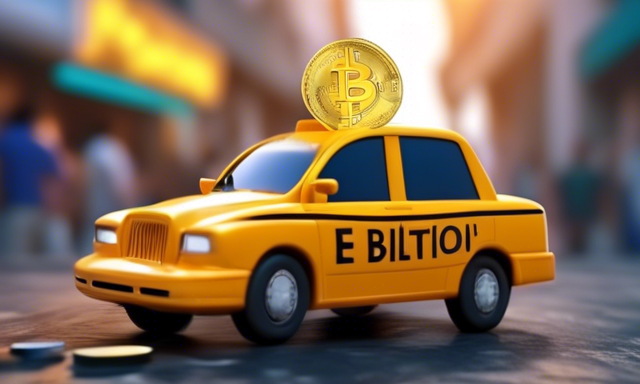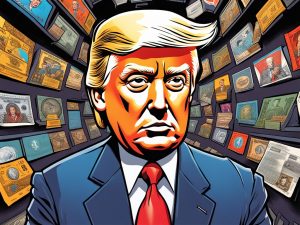Exploring the Impact of Bitcoin in El Salvador: Three Years Later 🌍
The journey of bitcoin in El Salvador has been remarkable since it was introduced as legal tender. This year marks significant developments in the nation’s economy and the lives impacted by this cryptocurrency. President Nayib Bukele’s bold move three years ago aimed to transition a country heavily reliant on remittances and the US dollar into a new digital frontier. From the perspectives of citizens like businessman Adriel Osorio, the effects of this policy are both manifold and profound.
Transformation Through Bitcoin: A Personal Success Story 🚀
Adriel Osorio, a 39-year-old entrepreneur, credits the legalization of bitcoin for transforming his life. Before this change, he faced unemployment, but now he runs a successful car rental service and handles ride-sharing payments through bitcoin. His story is one among many demonstrating the potential power of cryptocurrency for individual financial empowerment.
- Osorio is now able to employ 21 drivers through his Bit-Driver brand.
- The rise in bitcoin’s value has allowed him to purchase four rental cars.
- His financial situation has improved to the extent that he can afford his children’s education.
The Goals Behind Legalizing Bitcoin 💡
When Bukele launched bitcoin as legal tender on September 7, 2021, he aimed to integrate the approximately 70% of Salvadorans without bank accounts into the financial ecosystem. He introduced the Chivo Wallet app to facilitate free bitcoin transactions and incentivized new users with a $30 bonus. Despite these efforts, challenges arose along the way.
The International Monetary Fund (IMF) raised red flags over the use of cryptocurrency, which delayed a crucial $1.3 billion loan. Nevertheless, as of August, a preliminary agreement for assistance emerged, although the IMF emphasized the need to manage “potential risks” related to the country’s economic changes.
Mixed Reception from the Public 📊
Although there are individual stories of success, the broader adoption of bitcoin has been tepid. A study conducted by the University Institute for Public Opinion found that 88% of Salvadorans had not utilized bitcoin yet. Director Laura Andrade expressed skepticism, labeling the initiative as misguided due to public resistance from the onset.
- Remittances from family in the United States account for 25% of the national GDP.
- In 2023, only 1% of these transactions were conducted in cryptocurrencies.
In an interview with Time magazine, President Bukele acknowledged a mismatch between expectations and reality, revealing that while establishments like McDonald’s accept bitcoin, there hasn’t been the anticipated widespread acceptance.
Voluntary Adoption: Bukele’s Perspective 🙌
Bukele asserts that the approach to bitcoin has always been voluntary. He emphasized that while it remains an option for transactions, no one is compelled to use it. This flexibility has enabled those who embrace it to benefit from any price increases. He has reported holding approximately $400 million in a secure “cold storage wallet,” indicating a commitment to long-term adoption of bitcoin.
Challenges to Bitcoin’s Role as Currency 📉
The market performance of bitcoin has been a roller coaster. As of this week, the cryptocurrency traded around $52,000, a significant drop from its peak of $73,616 in March, and a stark contrast from its low in November 2022 of $16,189. This volatility raises questions about its viability as a stable currency.
Independent economist Cesar Villalona argues that President Bukele’s methods have hindered bitcoin’s full potential. Key functionalities of money—like receiving salaries, pensions, and pricing goods in bitcoin—have been sidestepped, reducing its practical usage for everyday transactions.
Addressing the Fear Surrounding Bitcoin 📚
Educational initiatives, such as those from the nonprofit My First Bitcoin, strive to demystify cryptocurrencies. They have introduced bitcoin education in schools, reaching around 35,000 students so far. However, many Salvadorans remain hesitant about switching currencies due to a general apprehension toward technology and digital finance.
Luis Contreras, an instructor, articulated that managing such fears is part of the challenge when adapting to new financial systems. Overcoming these barriers is crucial if cryptocurrencies like bitcoin aim to achieve broader acceptance among skeptics.
Continued Evolution in a Changing Economy 🌐
As El Salvador navigates its relationship with bitcoin, individual success stories emerge alongside widespread hesitance. Looking ahead, the nation will likely continue to seek ways to integrate cryptocurrency into daily life while managing the inherent risks and uncertainties it presents.





 By
By

 By
By
 By
By
 By
By
 By
By